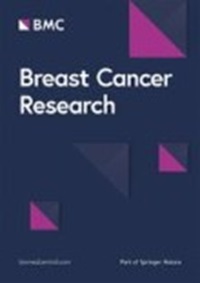REG3A 的表达增加会促进三阴性乳腺癌细胞的致瘤行为
IF 5.6
1区 医学
Q1 ONCOLOGY
引用次数: 0
摘要
确定三阴性乳腺癌(TNBC)的新靶点仍然至关重要。我们深入研究了钙依赖性凝集素蛋白 REG3A(再生胰岛衍生蛋白 3 A)在乳腺癌中的表达和功能。通过生物信息学和局部组织分析,确定了 REG3A 在乳腺癌中的表达。利用基因技术改变了 REG3A 的表达,并研究了其对乳腺癌细胞行为的影响。建立了皮下异种移植模型,研究REG3A对乳腺癌细胞体内生长的影响。对 TCGA 数据库的分析发现,人类乳腺癌组织中的 REG3A 含量有所增加。此外,局部治疗患者的 TNBC 组织中 REG3A mRNA 和蛋白水平升高,而相邻正常组织中的表达量较低。在原代人类 TNBC 细胞中,REG3A shRNA 明显阻碍了细胞的增殖、迁移和侵袭,同时引发了 Caspase 介导的细胞凋亡。同样,利用 CRISPR-sgRNA 敲除 REG3A 也显示出显著的抗 TNBC 细胞活性。相反,REG3A 的过表达会促进细胞增殖和迁移。REG3A对激活Akt-mTOR级联起着关键作用,REG3A沉默或敲除后Akt-S6K1磷酸化减少就是证明,REG3A过表达可逆转这种情况。组成型活性突变体 S473D Akt1(caAkt1)恢复了 Akt-mTOR 的激活,并抵消了 REG3A 敲除对乳腺癌细胞增殖的抑制和诱导的细胞凋亡。最重要的是,REG3A 在维持 mTOR 复合物完整性方面发挥了关键作用。生物信息学发现锌指蛋白680(ZNF680)是潜在的REG3A转录因子。在原发性乳腺癌细胞中,敲除或敲除 ZNF680 会降低 REG3A 的表达,而过表达则会增加 REG3A 的表达。此外,在乳腺癌组织和细胞中观察到 ZNF680 蛋白与 REG3A 启动子的结合增强。在体内,REG3A shRNA 能显著抑制原发性 TNBC 细胞异种移植的生长。在REG3A沉默的异种移植组织中,REG3A水平明显降低,Akt-mTOR受到抑制,细胞凋亡被激活。ZNF680引起的REG3A过表达可能通过刺激Akt-mTOR活化来驱动乳腺癌的肿瘤发生,成为一个有前景的创新癌症靶点。本文章由计算机程序翻译,如有差异,请以英文原文为准。
Increased expression of REG3A promotes tumorigenic behavior in triple negative breast cancer cells
Identifying new targets in triple negative breast cancer (TNBC) remains critical. REG3A (regenerating islet-derived protein 3 A), a calcium-dependent lectin protein, was thoroughly investigated for its expression and functions in breast cancer. Bioinformatics and local tissue analyses were employed to identify REG3A expression in breast cancer. Genetic techniques were employed to modify REG3A expression, and the resulting effects on the behaviors of breast cancer cells were examined. Subcutaneous xenograft models were established to investigate the involvement of REG3A in the in vivo growth of breast cancer cells. Analysis of the TCGA database uncovered increased REG3A levels in human breast cancer tissues. Additionally, REG3A mRNA and protein levels were elevated in TNBC tissues of locally treated patients, contrasting with low expression in adjacent normal tissues. In primary human TNBC cells REG3A shRNA notably hindered cell proliferation, migration, and invasion while triggering caspase-mediated apoptosis. Similarly, employing CRISPR-sgRNA for REG3A knockout showed significant anti-TNBC cell activity. Conversely, REG3A overexpression bolstered cell proliferation and migration. REG3A proved crucial for activating the Akt-mTOR cascade, as evidenced by decreased Akt-S6K1 phosphorylation upon REG3A silencing or knockout, which was reversed by REG3A overexpression. A constitutively active mutant S473D Akt1 (caAkt1) restored Akt-mTOR activation and counteracted the proliferation inhibition and apoptosis induced by REG3A knockdown in breast cancer cells. Crucially, REG3A played a key role in maintaining mTOR complex integrity. Bioinformatics identified zinc finger protein 680 (ZNF680) as a potential REG3A transcription factor. Knocking down or knocking out ZNF680 reduced REG3A expression, while its overexpression increased it in primary breast cancer cells. Additionally, enhanced binding between ZNF680 protein and the REG3A promoter was observed in breast cancer tissues and cells. In vivo, REG3A shRNA significantly inhibited primary TNBC cell xenograft growth. In REG3A-silenced xenograft tissues, reduced REG3A levels, Akt-mTOR inhibition, and activated apoptosis were evident. ZNF680-caused REG3A overexpression drives tumorigenesis in breast cancer possibly by stimulating Akt-mTOR activation, emerging as a promising and innovative cancer target.
求助全文
通过发布文献求助,成功后即可免费获取论文全文。
去求助
来源期刊

Breast Cancer Research
医学-肿瘤学
自引率
0.00%
发文量
76
期刊介绍:
Breast Cancer Research is an international, peer-reviewed online journal, publishing original research, reviews, editorials and reports. Open access research articles of exceptional interest are published in all areas of biology and medicine relevant to breast cancer, including normal mammary gland biology, with special emphasis on the genetic, biochemical, and cellular basis of breast cancer. In addition to basic research, the journal publishes preclinical, translational and clinical studies with a biological basis, including Phase I and Phase II trials.
 求助内容:
求助内容: 应助结果提醒方式:
应助结果提醒方式:


